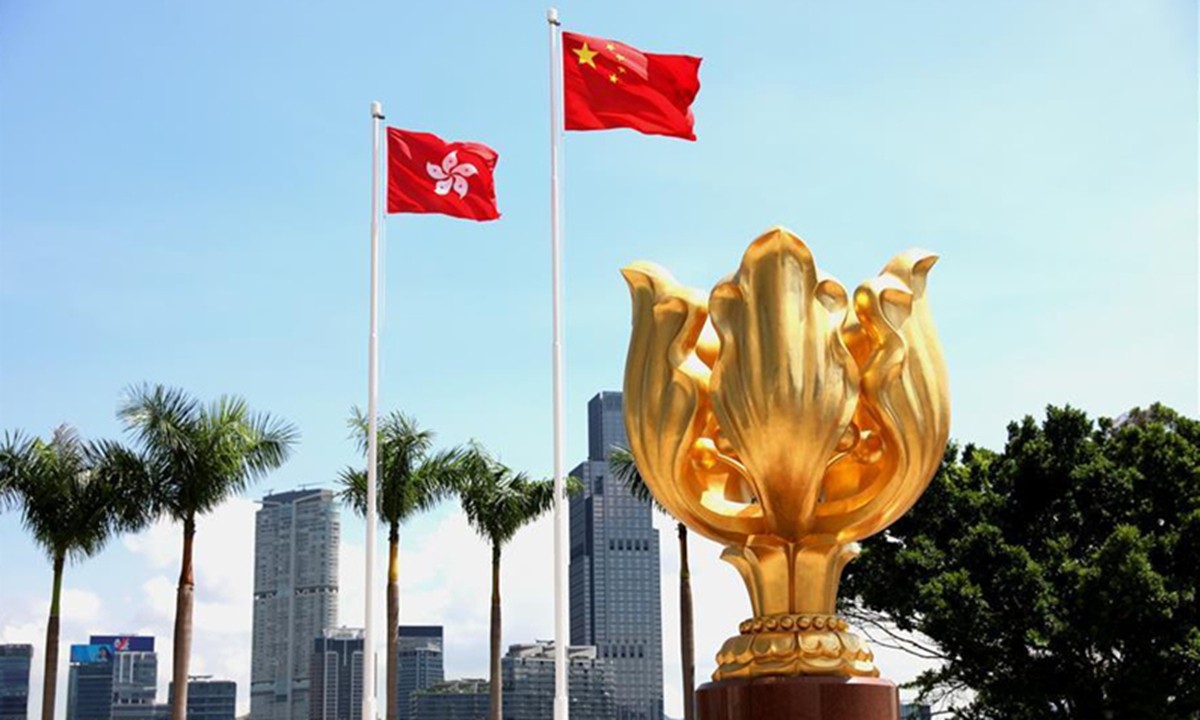Because there is “no room for anti-central government political groups to survive,” Hong Kong’s Civic Party dissolves.
The Civic Party of Hong Kong, a significant anti-government political organization that contributed to the social unrest in the city, declared its dissolution on Saturday because none of its members were ready to run in the Legislative Council election. According to experts, political organizations that aggressively oppose the central government and disobey the demand that only patriots govern Hong Kong can no longer exist.
Additionally, while posing as a local political party, the Civic Party colluded with foreign powers to act as their proxy in Hong Kong, and its purported liquidation is likely an effort to “cover up its illegal funding from foreign powers and to destroy evidence to evade legal responsibility,” according to some experts, who also called for the appropriate party members to be disciplined in accordance with the law.
The Civic Party, which was founded in 2006 and eventually formed a significant component of the anti-government movements in Hong Kong, was composed of certain social elites, particularly from the legal profession. Due to the party’s moderate position, public information indicates that its initial ties with the Hong Kong Special Administrative Region (HKSAR) government and the central government were “not bad”.
The Hong Kong riots in 2019 altered the political landscape of the anti-government camp, including the Civic Party, whose members had frequently participated in violent protests and refused to disband with the rioters, according to some local media. Some party members had previously been criticized for “being too moderate” in their political stance in comparison to the aggressive anti-government forces in the area.
Some ex-members, such Dennis Kwok Wing-hang and Alvin Yeung Ngok-kiu, even traveled to the US to campaign for the adoption of the Hong Kong Human Rights and Democracy Act, which was seen as an egregious instance of collusion with foreign parties to meddle in China’s internal affairs.
“The only way out for the Civic Party after the implementation of the National Security Law for Hong Kong and the electoral reform was to completely change its political stance and abandon the position of confronting the central government, but they failed to do so,” Lau Siu-kai, a senior policy advisor and consultant from the Chinese Association of Hong Kong and Macao Studies, told the Global Times on Sunday.
They had no other option than to dissolve the party since there is no place for it to continue in the current political climate, according to Lau.
Numerous MPs have left the Civic Party since the HKSAR government introduced the notion of only patriots being able to rule Hong Kong, which requires lawmakers from all sectors to swear a loyalty pledge. The party ultimately lost its status as the second-largest opposition party and became a “no-seat party,” as reported in the media. Legislators like Yeung, who participated in the notorious “35-plus” political tactic in 2020, have been detained and prosecuted in the meanwhile.
In addition to the decision to dissolve the party, Civic Party chairman Alan Leong said on Saturday that a liquidator has been appointed and would take charge of the organization as of Sunday. Meanwhile, the temporary executive committee would lose all authority, according to the RTHK local media site.
According to Willy Fu, a law professor and vice-chairman of the Hong Kong Legal Exchange Foundation, Leong has long used the party as a political tool to allegedly collude with outside forces and receive “black money,” smear and discredit the Chinese mainland and the HKSAR government, poison the minds of young people, and attempt to undermine national security and peace in Hong Kong.
As a participant in the controversial “35-plus” political strategy news conference, Leong should be held legally accountable for his actions, according to Fu. He cannot avoid legal consequences by dissolving the party.
According to some analysts, the US and other foreign powers no longer substantially depend on the anti-China rioters in Hong Kong, and the people of Hong Kong have become dissatisfied with what the rioters in Hong Kong have done over the last several years and have avoided them.
Lau added, “All these things have taken away their room for survival today.”













